Summer is in full swing and that means one thing for a lot of people: road trips! It means you’ll be hitting the open road in your car very soon. But before you do, there are a few things you should check to make sure your car is ready for summer vacation. One of those things is making sure your AC is working properly. A lot of people don’t realize that if their AC isn’t working right, it can cause their car to vibrate when they turn it on. This blog post will tell you why your car vibrates when the AC is turned on and what you can do to fix it!
What Causes Car Shakes When AC Is On?
Load on Engine
Most of the time, car shakes when the air conditioner (AC) is on are caused by a heavy load put on the engine. This can happen if your AC compressor is old, worn out, or underpowered for the vehicle’s size. When the compressor turns on, it requires more power from your engine to operate, which causes your vehicle to shake and vibrate. If you notice this happening frequently, it may be a good idea to take your car in for an AC system inspection.
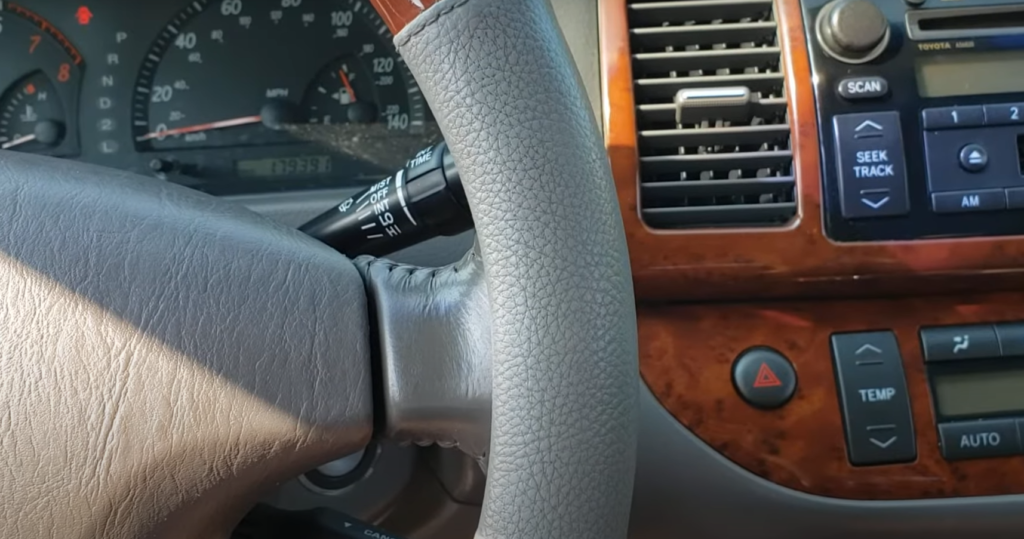
Faulty Parts
In some cases, shaking can also occur due to faulty parts in your air conditioning system. Loose mounting brackets, incorrect belt tensioning, or broken components can all cause excessive vibrations that make your car shake when the AC is on. You may also experience shaking if the air conditioning system has a refrigerant leak or is not properly charged with coolant. If you suspect faulty parts, it’s important to have them inspected by an experienced mechanic as soon as possible.
Broken Motor Mounts
Another common cause of car shaking when the AC is on is broken motor mounts. Motor mounts are responsible for holding your engine in place and dampening vibrations from its movement. When they become worn out or damaged, they can allow too much engine movement, resulting in vibration and shaking when the AC compressor turns on.
Improperly Balanced Tires
Car shakes when the AC is on can be caused by improperly balanced tires. If your tires are not properly balanced, the shaking and vibration from the road can be amplified when the AC compressor turns on. To avoid this problem, make sure to have your tires regularly checked for proper balance and rotation.
Bad Throttle Position Sensor
A bad throttle position sensor (TPS) can also cause your car to shake when the AC is on. The TPS monitors the throttle position and sends signals to the engine control unit (ECU). If it’s not working properly, it can cause misfiring and a loss of power, causing your car to shake and vibrate. To prevent this from happening, make sure that your TPS is checked regularly and replaced as needed.
Faulty Fuel Injector
A faulty fuel injector can cause the car shakes when the AC is on. If your fuel injector gets clogged or is not working properly, it can cause misfiring and poor engine performance. This will result in vibration and shaking when the AC compressor turns on.
Damaged or Old Spark Plugs
Damaged or old spark plugs can also cause vibration and shaking when the AC is on. Spark plugs are responsible for igniting the air-fuel mixture in your engine, so if they’re damaged or worn out, they won’t be able to do their job correctly. To prevent this from happening, make sure to have your spark plugs checked regularly and replaced as needed.
Damaged AC Compressor
A damaged AC compressor can also cause the car to shake when the AC is on. If your compressor has become worn out or isn’t working properly, it may be putting an excessive load on your engine, resulting in vibration and shaking. To fix this problem, you’ll need to have your AC compressor inspected by a mechanic as soon as possible [1].
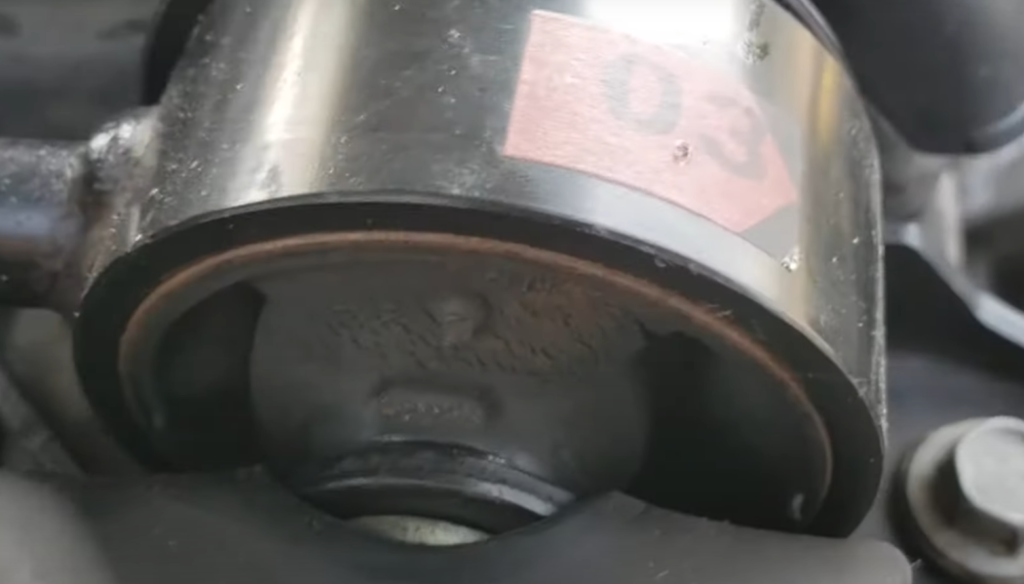
How To Fix Car Shakes When AC is on?
Step 1: Shut Off The Engine
The first step to take when you experience car shakes when the AC is on is to shut off the engine. This will help reduce any additional shaking and also stop it from getting worse.
Step 2: Check Oil Level
Once the engine has been turned off, it’s important to check your oil level. If it’s low or needs topping up, fill it up according to your car manufacturer’s instructions.
Step 3: Inspect The Cabin Air Filter
The cabin air filter is responsible for cleaning the air before entering your cabin through the vents. It may be clogged with dust, dirt, and other debris that can cause your AC system to start vibrating. To properly inspect it, remove the filter and give it a good shake to see if any debris falls out. If so, replace the filter with a new one.
Step 4: Check The Compressor Belt
The compressor belt is responsible for powering the AC system in your car. It is made of rubber and can become worn or stretched over time due to wear and tear. Make sure to check it regularly and replace it if necessary.
Step 5: Check The Refrigerant Level
Low refrigerant levels can cause the AC system in your car to vibrate when turned on. To check, locate the low-pressure port (usually located near the condenser) and check its level with a refrigerant gauge. If the level is low, it needs to be recharged with the correct amount of refrigerant.
Step 6: Fix Loose Motor Mounts and Check Vibration Dampers
If your car’s motor mounts are loose or worn out, they can cause increased vibration when the AC is turned on. You should also check the vibration dampers as they can help reduce vibrations that are caused by an unbalanced fan blade or compressor belt.
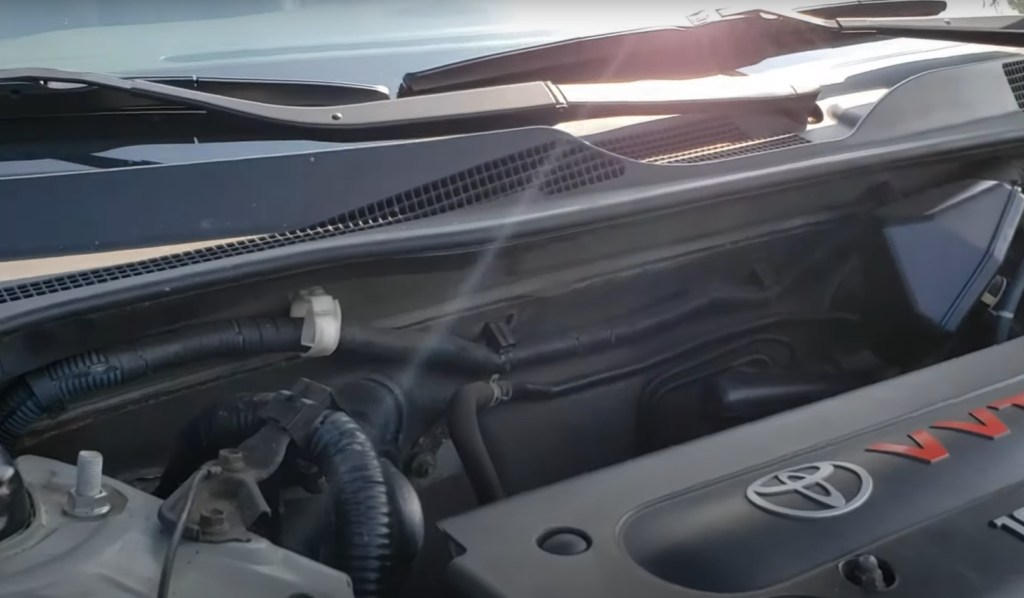
Step 7: Find The Throttle Body Under The Hood
The throttle body is responsible for controlling the amount of air entering the engine. If it’s dirty or clogged, it can cause your car to shake when the AC is on. Clean it with a degreaser and replace any broken parts if necessary.
Step 8: Test The AC System
Once you have followed all of these steps, turn on the engine and test out the AC system. If it’s still shaking, you may need to bring your vehicle in for professional repairs. A qualified technician can diagnose the problem and provide you with an accurate solution.
Step 9: Leave Your Car Key Turned “ON” Position, But Don’t Start It
This will help keep the system from overheating and allow you to detect any problems with the AC system while it’s running. If you detect any shaking or strange noises, shut off the engine and consult a professional as soon as possible.
Step 10: Press The Accelerator Smoothly
When you press the accelerator pedal, press it smoothly instead of pushing it down quickly. Doing so can help keep your car from shaking and reduce any vibrations caused by the AC system.
Step 11: Clean The Throttle Body Using Throttle Body Spray
If the throttle body is still dirty or clogged after you’ve cleaned it, spray a special throttle body cleaner. This will help dissolve any dirt and grime that has built up in the housing. Follow the instructions on the can for the best results [2].
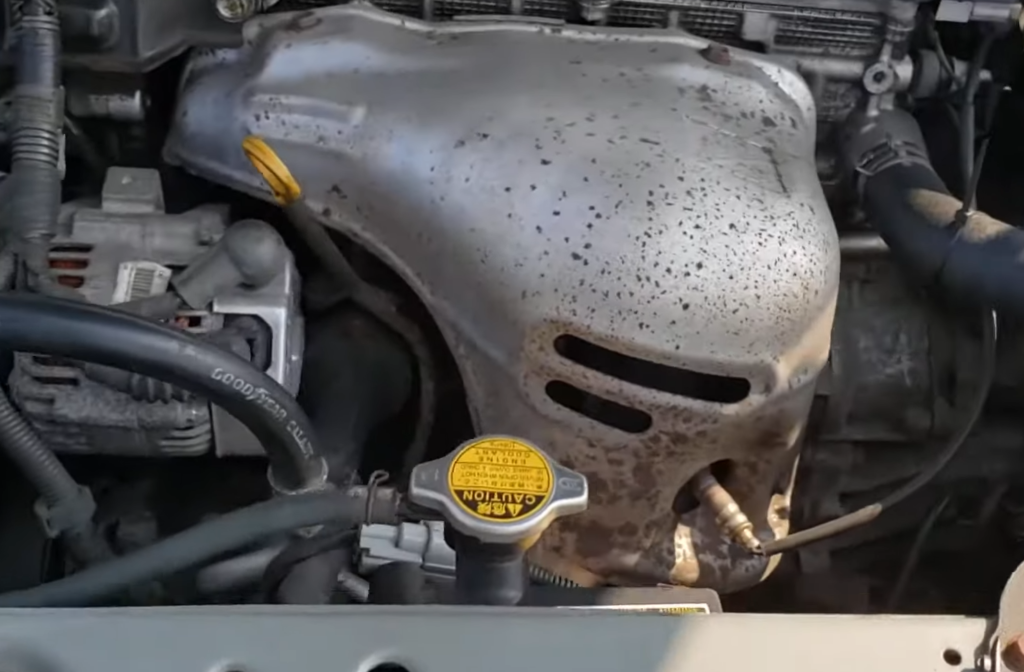
Can A Bad Fuel Pump Cause Your Car To Shake?
A bad fuel pump can cause your car to shake. A malfunctioning fuel pump can cause the engine to run at an uneven speed, causing vibrations that you can feel while driving. In addition, a weak or faulty fuel pump may not be able to provide enough fuel pressure for the engine, resulting in poor performance and shaking throughout the vehicle.
Fuel pumps eventually wear out over time and need to be replaced in order for your car to run properly. If you notice any odd behavior from your car such as jerking, stuttering, misfiring, or vibrating it is important to take your car in for service as soon as possible.
If you think that your car may need a new fuel pump, the best way to confirm this is by getting it checked out at a repair shop so they can run diagnostics on the vehicle and make sure that the fuel pump is indeed faulty. A certified mechanic will be able to properly diagnose any issues with your car and get it back running smoothly in no time.
All in all, if your car is shaking or performing poorly, then a bad fuel pump may be the cause. It is important to get it serviced right away before any further damage occurs. With proper maintenance and regular check-ups, you can keep your car running smoothly for many miles to come [3]!
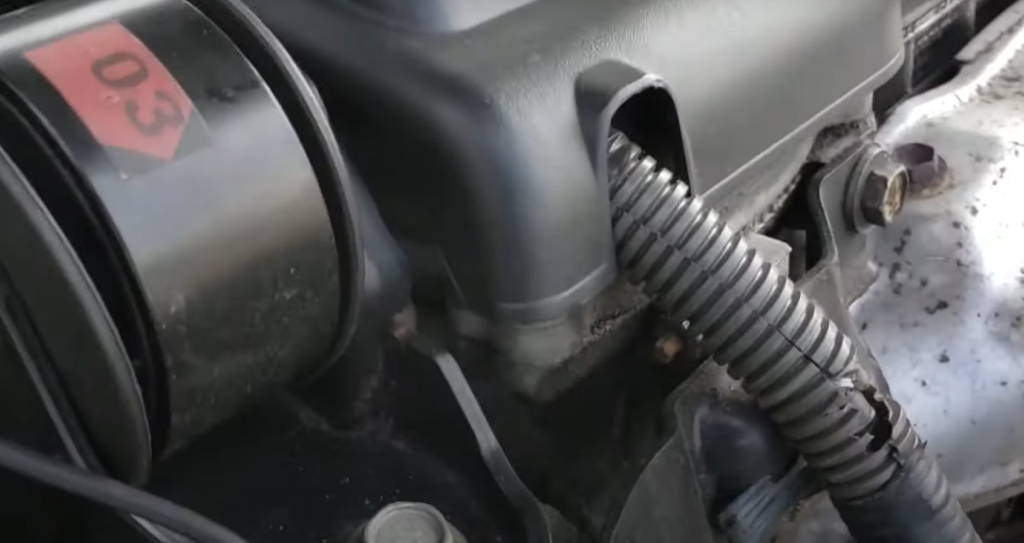
Idle Quivers: Addressing Car Vibrations When the AC is On
Experiencing unsettling vibrations when your car is idle, especially with the AC on? Navigate the detailed table below to uncover potential causes, recommended actions, and preventive measures to ensure a smooth and comfortable driving experience.
| Possible Cause | Symptoms | Actions to Take | Preventive Measures |
|---|---|---|---|
| 1. Engine Misfire | Vibration at idle, rough engine performance | Diagnose and repair the root cause of the misfire | Regularly maintain the ignition system, change spark plugs as recommended |
| 2. Faulty Motor Mounts | Excessive engine movement, pronounced vibrations | Inspect and replace worn or damaged motor mounts | Regularly check motor mounts during routine maintenance |
| 3. AC Compressor Issues | Vibration coinciding with AC engagement | Have the AC system inspected and repaired if necessary | Regular AC system maintenance, replace the compressor clutch if needed |
| 4. Vacuum Leaks | Idle fluctuations, AC-related vibrations | Identify and repair vacuum leaks in the engine | Regularly inspect and maintain vacuum hoses |
Explanation of the table:
- Engine Misfire: If you experience vibration at idle and rough engine performance, diagnose and repair the root cause of the misfire. Regularly maintain the ignition system and change spark plugs as recommended.
- Faulty Motor Mounts: Excessive engine movement and pronounced vibrations may indicate worn or damaged motor mounts. Inspect and replace motor mounts as needed, and regularly check them during routine maintenance.
- AC Compressor Issues: If vibrations coincide with AC engagement, have the AC system inspected and repaired if necessary. Regular AC system maintenance is essential, and consider replacing the compressor clutch if needed.
- Vacuum Leaks: Idle fluctuations and AC-related vibrations may be caused by vacuum leaks in the engine. Identify and repair vacuum leaks, and regularly inspect and maintain vacuum hoses.
FAQ
What causes rough idle when AC is on?
There are many potential causes for rough idle when the AC is on, including a faulty idle air control valve, a vacuum leak, or an incorrectly adjusted air-fuel mixture. Other possibilities include a clogged fuel filter, spark plugs that need replacing, or a failing oxygen sensor. It may also be caused by low levels of refrigerant in the AC system. If none of these potential issues is identified and corrected, further damage to the engine and other components can occur. Therefore it is important to have any rough idling investigated and resolved as soon as possible.
What should I do if my car won’t start?
If your car won’t start there are several things you can check before taking it to a mechanic. First, check that the battery is fully charged and ensure all electrical connections are secure. It’s also a good idea to inspect the starter motor, fuel system, spark plugs, and ignition system. If these components appear to be in working order then you should take your car to an experienced mechanic who can diagnose any underlying issues. In some cases, your vehicle may need a new starter or battery. Finally, make sure to only purchase replacement parts from reliable sources to ensure their quality and safety. By taking these steps you can help ensure your vehicle starts reliably and runs efficiently on the road.
How do you fix a rough idle when AC is on?
To fix a rough idle when AC is on, first check the idle air control valve and make sure it’s functioning properly. Next, inspect for vacuum leaks and adjust the air-fuel mixture as needed. If these steps don’t solve the problem then you should check for clogged fuel filters, worn or fouled spark plugs, or failing oxygen sensors. It is also important to ensure that there are sufficient levels of refrigerant in the AC system. All of these potential causes should be checked by an experienced mechanic who can help diagnose any underlying issues and provide the appropriate repairs. This will ensure your vehicle runs smoothly with AC turned on.
How do I know if my car needs a tune-up?
A tune-up should be performed regularly to help ensure your vehicle is running optimally. Signs that it’s time for a tune-up include decreased fuel economy, rough idling, slow acceleration, misfiring of the engine, or difficulty starting. If you notice any of these issues then it may be time to take your car in for a tune-up. In addition to checking and replacing worn parts such as spark plugs and filters, an experienced mechanic should also inspect the catalytic converter and oxygen sensor to identify any potential issues. Taking care of these components will help your vehicle run efficiently and safely.
Will a bad AC compressor affect the engine?
Yes, a bad AC compressor can affect the engine. The compressor is responsible for pumping refrigerant throughout the AC system and any issues with it can cause the motor to overheat or exert more strain on other components. A malfunctioning compressor can also lead to poor fuel economy and decreased performance of the vehicle’s engine. Therefore it is important to have your AC system checked regularly by an experienced mechanic who can identify these potential problems before they become serious.
How can I make my car idle smoother?
The first step in making your car idle smoother is to check the idle air control valve and make sure it’s functioning properly. You should also inspect for vacuum leaks and adjust the air-fuel mixture as needed. If these steps don’t resolve the issue then you should check for clogged fuel filters, worn or fouled spark plugs, or failing oxygen sensors. Additionally, make sure that there are sufficient levels of refrigerant in the AC system. An experienced mechanic can help diagnose any underlying issues and provide the appropriate repairs. By taking these steps you will ensure your vehicle runs smoothly and efficiently on the road.
Why does my car shudder when the AC is turned on?
If your car is shuddering when the AC is turned on, it may be due to a variety of factors. The first step should be to check the idle air control valve and make sure it’s functioning properly. You should also inspect for vacuum leaks and adjust the air-fuel mixture as needed. If these steps don’t solve the problem then you should check for clogged fuel filters, worn or fouled spark plugs, or failing oxygen sensors.
Additionally, ensure that there are sufficient levels of refrigerant in the AC system. All of these potential causes should be checked by an experienced mechanic who can help diagnose any underlying issues and provide the appropriate repairs. Taking care of these components will help your vehicle run smoothly with AC turned on.
Why does my car vibrate after starting but stop once the engine is warm?
If your car is vibrating after starting up but stops once the engine warms up, then it may be an issue with worn or fouled spark plugs. Spark plugs are responsible for providing the power to start the engine and can become faulty over time. It’s important to check if any of the spark plugs need to be replaced as this could help resolve your issue. Additionally, you should inspect for vacuum leaks and adjust the air-fuel mixture as needed. An experienced mechanic can also help diagnose any underlying issues and provide the appropriate repairs. By taking these steps you will ensure your vehicle runs smoothly without vibration when you start it up.
Should I be worried if my car is vibrating?
Yes, you should be worried if your car is vibrating. Vibration can indicate a variety of issues such as worn or fouled spark plugs, clogged fuel filters, vacuum leaks, and failing oxygen sensors. Additionally, make sure that there are sufficient levels of refrigerant in the AC system. It’s important to have an experienced mechanic inspect your vehicle to identify any potential problems before they become serious. Taking care of these components will help your vehicle run efficiently and safely without vibration.
Why does my car vibrate when idle, especially when the AC is turned on?
If your car vibrates when idle, especially when the AC is turned on, it may be indicative of an issue with the engine or the air conditioning system. The additional load imposed by the AC compressor can exacerbate existing problems. Potential causes include a misfiring engine, worn-out engine mounts, a faulty AC compressor, or issues with the idle control system. Diagnosing and addressing the specific cause is crucial to resolving the vibration issue.
What steps can I take to troubleshoot and address the vibration when the AC is on?
To troubleshoot and address the vibration when the AC is on, consider the following steps:
- Check for engine misfires: A misfiring engine can contribute to vibration. Have the ignition system, spark plugs, and fuel injectors inspected and replaced if necessary.
- Inspect engine mounts: Worn-out or damaged engine mounts can lead to increased vibration. Replace any faulty mounts to restore stability.
- Examine the AC compressor: A malfunctioning AC compressor may cause vibrations. Consult a professional mechanic to assess and repair or replace the AC compressor if needed.
- Verify idle control system: Issues with the idle control system can impact engine performance. Have the idle control valve, throttle body, and related components inspected for proper functioning.
Addressing these potential issues can help eliminate the vibration when the AC is on and improve overall driving comfort.
Is it safe to continue driving if my car vibrates when idle and the AC is on?
While driving with mild vibrations may not pose an immediate safety risk, it is advisable to address the underlying issue promptly. Ignoring vibrations can lead to increased wear on engine components and potentially more significant problems over time. If the vibration is severe or accompanied by other symptoms, such as unusual noises or warning lights, it is recommended to avoid prolonged driving and seek professional assistance to prevent further damage and ensure safety.
Can a DIY enthusiast fix the vibration issue, or is professional help necessary?
While some troubleshooting steps, such as inspecting engine mounts or checking for visible issues, can be performed by DIY enthusiasts, diagnosing and resolving complex issues may require professional expertise. Engine diagnostics, AC system assessments, and repairs often involve specialized tools and knowledge. If you are unsure about the cause of the vibration or lack the necessary skills and equipment, consulting a professional mechanic is recommended to ensure accurate diagnosis and effective resolution.
Are there preventive measures to avoid vibrations when the AC is on in the future?
Regular maintenance and timely addressing of any engine or AC system issues are essential preventive measures. Follow the manufacturer’s recommended service intervals, keep the engine well-tuned, and address any warning signs promptly. Periodic inspections by a qualified mechanic can help identify potential issues before they escalate, ensuring a smoother and more comfortable driving experience, especially when the AC is in use.
Useful Video: IF your Engine vibrates while your car is in drive and Your AC is on then check this. ( 2003 camry)
Conclusion
The car vibrates when idle and AC is on. In this case, the most likely causes are an exhaust leak, a misfiring spark plug, or an aging belt and pulley system. To diagnose and fix the problem, it is important to take the car to a certified mechanic who can inspect and test each component thoroughly. In some cases, simple fixes like replacing worn-out parts might be enough to solve the issue. However, if more complex repairs are needed, then it is best to get professional help to avoid further damage down the road. Taking care of any car vibration problems promptly will help keep your vehicle running safely for many years to come.
References
- https://rxmechanic.com/car-shakes-when-ac-is-on/
- https://caralso.com/car-shakes-when-ac-is-on/
- https://theproctordealerships.com/5-common-signs-fuel-pump-failing/

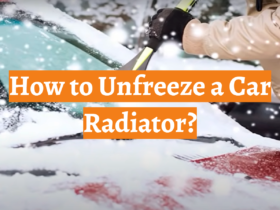
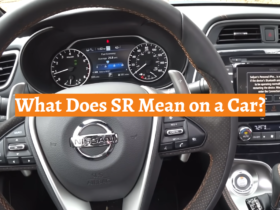


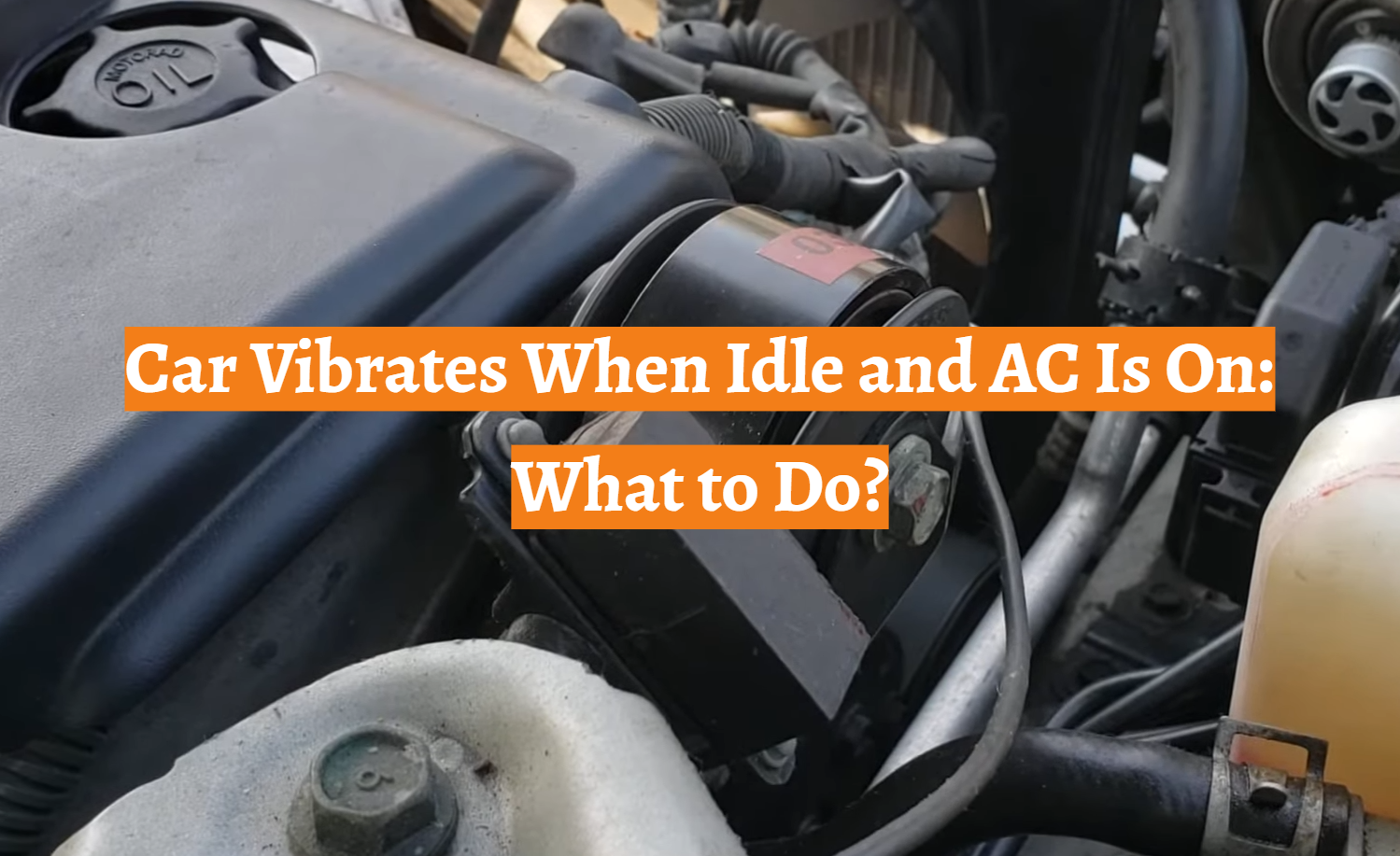
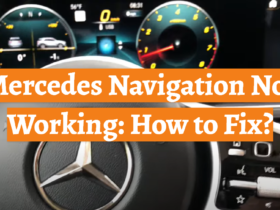
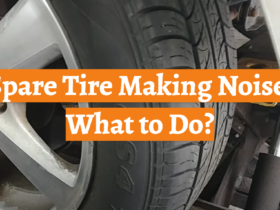

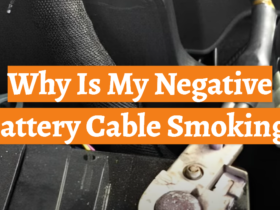
Leave a Review